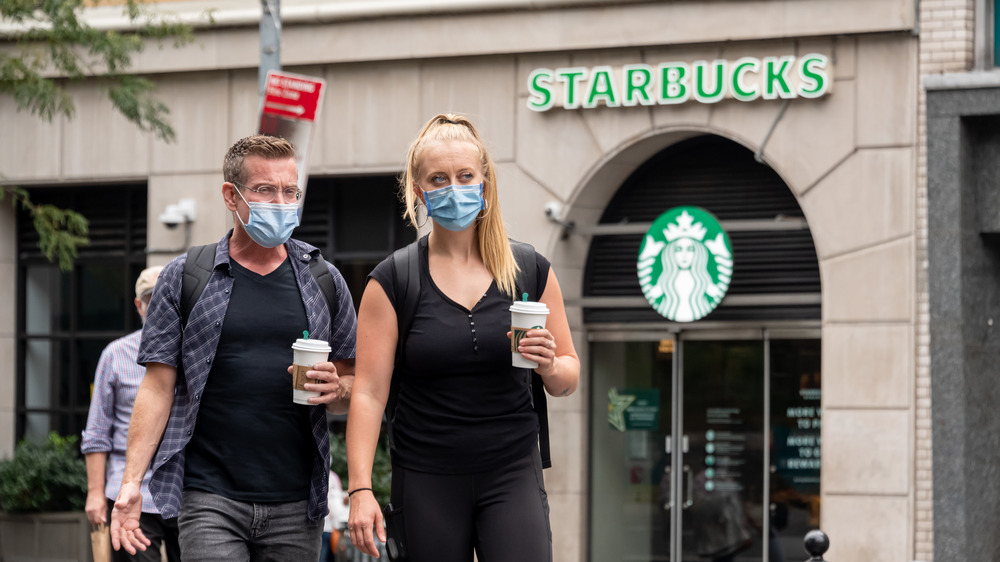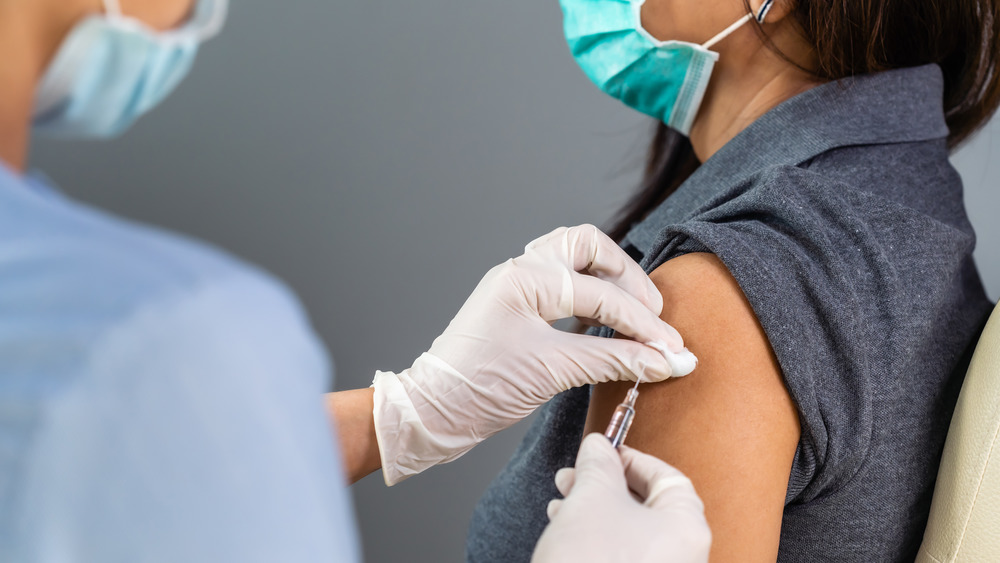The Reason Starbucks Is Helping Washington State Distribute The COVID Vaccine
Starbucks is using its resources in a unique way to help distribute the COVID-19 vaccine. The issuing of the two required shots have been moving much slower than anticipated and Washington Gov. Jay Inslee is working to change that, per NBC. The outlet reports that across the U.S. only 12.2 million Americans have received a vaccination, according to research from the Centers for Disease Control and Prevention. That's much smaller than the 20 million people that the Trump administration said they wanted to vaccinate by the end of 2020.
To help speed up this process in his state, Inslee said Starbucks has agreed to have 11 employees "with expertise in labor and deployment" to aid Washington with its distribution. Starbucks CEO, Kevin Johnson, explained that he asked the state in early January how the company could help in rolling out the vaccine, per Food & Wine. "I just did the math, and figured out at this rate of vaccination, it's going to take six, seven, eight years for this country to get vaccinated," Johnson said. "So we have to dramatically scale this up and accelerate the progress."
How Starbucks will help to streamline the COVID-19 vaccination process
NBC reports the coffee chain will be assisting behind-the-scenes to ensure the vaccine distribution is running smoothly and "will use the company's computer simulation modeling system to find ways to expedite inoculations." There are currently no plans to have Starbucks locations act as a vaccination site, per Food & Wine. However, the state is hoping with the company's help it can administer 45,000 doses a day.
Washington will also be creating vaccination sites that you can drive up to and will be partnering with more than 2,000 pharmacies to distribute the shots, according to NBC. "This is a unique challenge for the United States and in every state to stand up a total mobilization of our resources," Inslee said. "We did that in World War II when we built the Liberty ships here in Washington state. We reached production levels that no one could imagine because we set ambitious goals."

